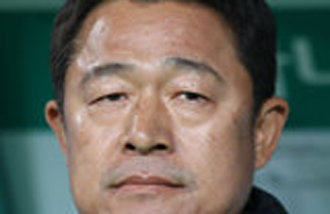[Editorial] Nat`l Assembly Should Know What People Want
[Editorial] Nat`l Assembly Should Know What People Want
Posted April. 16, 2008 03:26,
The Grand National Party and the United National Democratic Party agreed to open a special session of the National Assembly in April to handle bills related to the welfare of the people. But one wonders if they can accomplish something that the people want. That is because they avoided dealing with government regulation-related bills and ratification of the Korea-U.S. free trade agreement, which are two key bills associated with peoples livelihoods. They say that they will discuss by issue. This signals that political circles in this country still do not understand what the public really want and how the laws are affecting lives.
United National Democratic Party floor leader Kim Hyo-seok maintained that reform or abolition of regulation-related laws, including abolishment of the ceiling on conglomerate investment and easing of the separation between banking and commerce, is about helping chaebols, rather than about improving the lives of everyday people. It is hard to revitalize the economy unless the government relaxes regulations serving as obstacles to corporate activity. Economic slowdown is the most serious problem the people face. There is no issue more urgent for the people than economic recovery. Jobs can be created only when the government deregulates and capital investment is made. But politicians are still saying that handling such issues will help chaebols, even as they are seeing the pain of unemployed 20-somethings and the so-called 880,000-won generation.
In this globalized world, no issue can be more closely related to the livelihood of the people than the KORUS FTA. Achieving sustainable development through free trade with the worlds largest market is the way for resource-poor and highly-populated Korea to survive. The FTA is practically the only shining achievement that the Uri Party, from which the United National Democratic Party emerged, achieved as the ruling party.
Meanwhile, many of the bills related to peoples everyday lives, which the two parties say they agreed to handle, are hard to understand. A case in point is the bill on establishing a ceiling on hikes in university tuition fees. A culmination of anti-autonomy, the bill was, ironically, unconstitutional. As such, there is no world-class university in Korea. Left-leaning laws that the 17th National Assembly churned out under the Roh Moo-hyun administration clearly demonstrate how poorly drafted legislation or reform laws can make peoples lives difficult.
As the two parties agreed to open a special session, hopefully they can return to the basics by reflecting on the meaning of improving peoples livelihoods and how to achieve it. At least they should not gloss over their experience with anti-liberty, anti-market bills as they strive to improve peoples everyday lives.
Headline News
- Iran blames US sanctions for helicopter crash that killed president
- Pres. Yoon vetoes investigation into death of marine
- “Croatia Holds a Business Forum in Seoul…Looking forward to the development of trade relations”
- Samsung names new chief for semiconductor business
- Seoul City plans to expand welfare benefits







